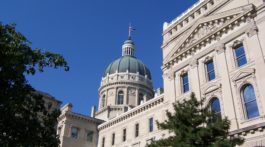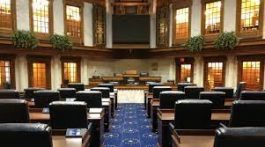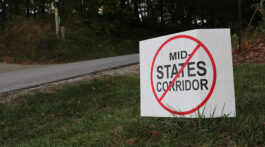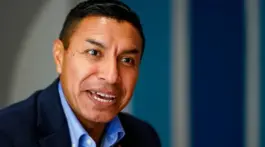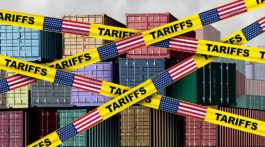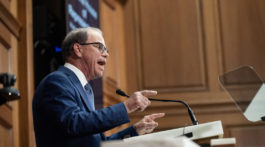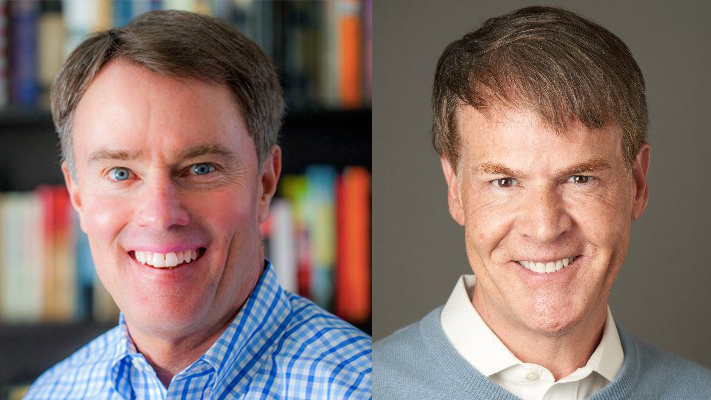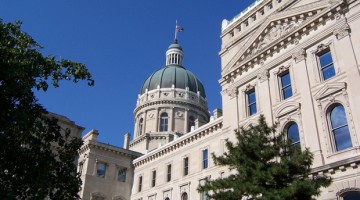By Andrew Weissert & Abdul-Hakim Shabazz
Indianapolis Mayor Joe Hogsett ultimately cruised to re-election last week, blowing out Republican challenger Jefferson Shreve by nearly 20 points.
With Shreve self-funding and spending nearly $15 million – an unprecedented number for a Republican – many thought this could be a competitive race. That belief was supported by the polling commissioned by Indy Politics in late September.
Just 27 percent said that Indianapolis was headed in the right direction, while 54 percent said it had gotten off on the wrong track.
Mayor Joe Hogsett’s job approval sat underwater at 46 percent Approve/47 percent Disapprove.
56 percent of voters said that downtown Indianapolis was unsafe, and 44 percent picked fighting crime, gangs, and drugs as the most important issue for the Indianapolis City-County Council to focus on.
Additionally, while our polling had Hogsett beating Shreve by 10 points, it also showed that Hogsett was dramatically underperforming his Democratic base and had a problem with Black voters.
So, what happened?
Hogsett’s base came home and came home in a big way.
69,000 Democrats voted straight ticket, more than Shreve’s entire vote total.
So, was the polling wrong? Not at all.
In fact, in our analysis, we commented, “On the one hand, if I’m Joe Hogsett, I would be disappointed to be below 50 percent in a city like Indianapolis, given the demographics… On the other hand, I don’t see signs Jefferson Shreve is capitalizing on Hogsett’s vulnerabilities… If Shreve wants to win, he needs to be pulling a lot more votes from those groups.”
While crime was a significant issue for voters, it wasn’t nearly the factor it appeared it would be.
In polling, we often talk about differentiating between the signal and the noise. In this case, the noise was 44 percent of voters saying crime was their most important issue, 56 percent of voters saying downtown was unsafe, and 13 percent of Democrats and 24 percent of Black voters being undecided.
The signal was in our head-to-head polling, where just 39 percent of voters said they believed Shreve would be more effective at dealing with crime, while 37 percent chose Hogsett. If voters said crime was important, they weren’t really blaming Hogsett, and Shreve wasn’t a clear alternative, particularly in a city where Democrats hold a massive demographic advantage.
Meanwhile, 51 percent of voters said Hogsett would be the better advocate for an inclusive, local economy, while just 30 percent said, Shreve. 45 percent said Hogsett would be the most effective in developing workforce housing, while just 27 percent said Shreve. To the 56 percent of voters who DIDN’T pick crime as their number one issue, Hogsett was the clear preference.
The simple fact is that Shreve failed to chip away at Hogsett’s base, a necessity if he wanted to pull off the upset. What happened was the far more predictable and likely scenario. Those Undecided Democrats and Black voters came home and voted straight ticket, propelling Hogsett to easy re-election and pushing his margin from 10-points to 20-points.
We look forward to doing this again in next year’s gubernatorial primary.
Abdul-Hakim Shabazz is an attorney and the editor and publisher of Indy Politics,
Andrew Weissert is a long-time pollster and the owner of ARW Strategies.



